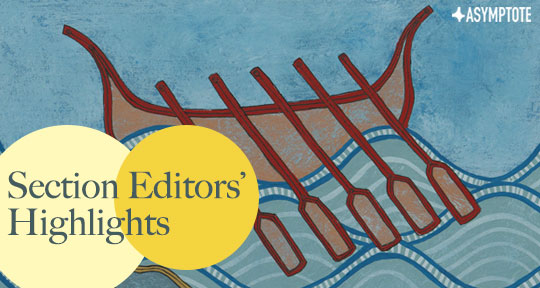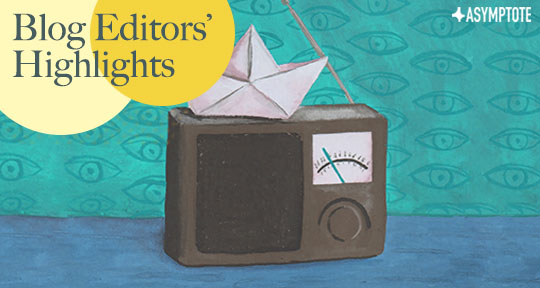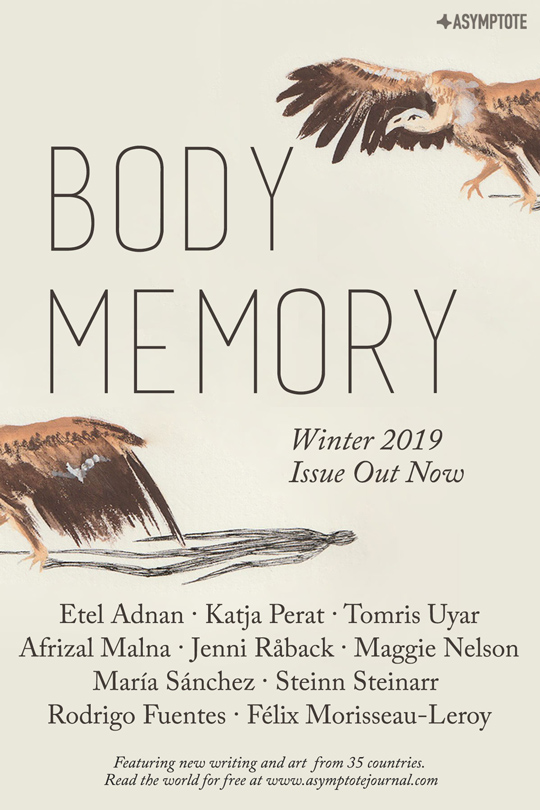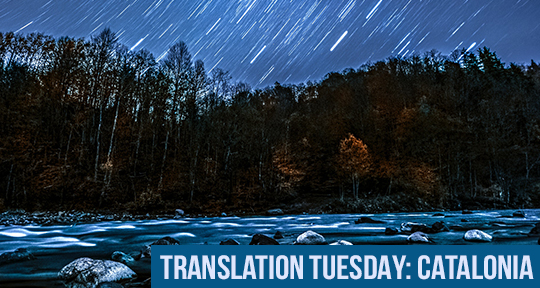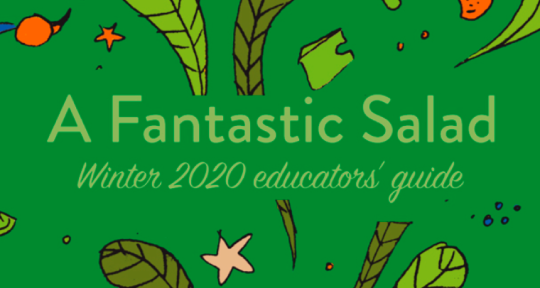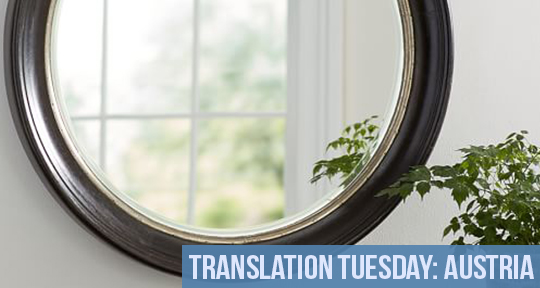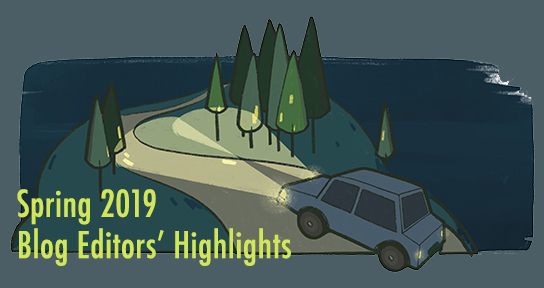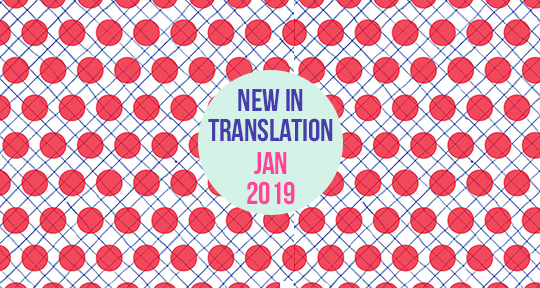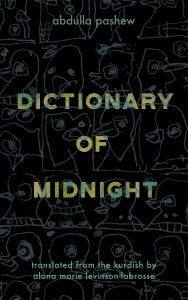Often, our love for literature is catalyzed by a journey taken within a classroom. No matter where and how we teach literature, it is always an opportunity for our students to engage with their world in a new way. The Asymptote Educator’s Guide is a resource we’ve developed to facilitate more of these expeditions, bringing important, diverse works from our issues into the classroom by way of a curated and detailed guide for teachers. In the following essay, Barbara Thimm, Assistant Director of Asymptote’s Educational Arm, discusses the immense potentials and applications of the Winter 2020 Educator’s Guide.
Jerome Bruner, the famous cognitive psychologist and one of the most important contributors to the theory of education, likened reading to a journey into new terrains without the help of a map: “As our readers read, as they begin to construct a virtual text of their own, it is as if they are embarking on a journey without maps.“ Yet that emerging virtual text is shaped by our previous reading experiences, “based on older journeys already taken . . .” Eventually, that journey becomes a thing of its own, a generator of new maps and thus an extension of the reader’s world, an addition to her repository of maps.
World literatures are particularly apt in expanding their readers’ collections of maps, that is, to enrich their reading of the world, not only literally in the sense that they raise awareness of writing and thinking in parts of the world more likely to be “known” via externalized news reports, if at all. Through their defined difference, world literatures confront us with names, places, and narrative patterns that are farther removed from the “older journeys already taken,” and thus extend the routes we can travel in the future. It follows that world literature can be made uniquely productive in encouraging our students to expand their horizons by adding to the variety and reach of their reading maps.
Asymptote’s mission, “to unlock the literary treasures of the world,” thus becomes a rich resource for a variety of classrooms in the English language arts, not least because the vast majority of the pieces published here are contemporaneous—that is, they reflect the thinking, storytelling, and creativity of artists writing in our present moment. Often, these texts are not part of a canon, nor can they be found in print outside their countries of origin. What they have in common is that someone who speaks both English and the language of the original artist found them worthy of her or his attention and effort, and brought them forward so that we may connect their ideas, experiences, and visions of the world to ours. Bringing these voices to the attention of our students is an ever more urgent endeavor in a time where nationalist interests and perspectives crowd out more unifying visions. READ MORE…

